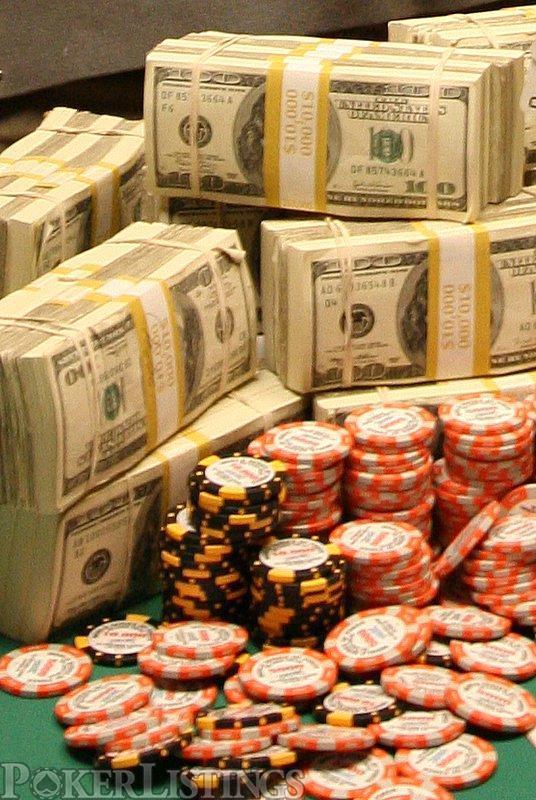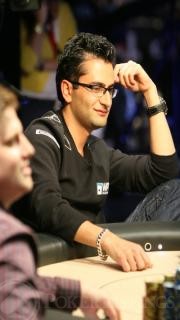Protect Your Home Game from Cheaters: Part 1

- Fact Checked by: PokerListings
- Last updated on: October 10, 2024 · 7 minutes to read
This is the first of two articles to point out a few of the ways players can cheat at live poker. The first step to not getting scammed is to know what the scams are.
Ever heard the expression “All is fair in love and war”? This used to characterize people’s view of poker, and I appreciate and sympathize with this notion of the game.
Golfers grease up the face of their clubs, batters cork their bats, hockey players hook their blades, point guards purposely foul opponents and poker cheats keep an ace up their sleeve.
That doesn’t mean, though, that you have to offer yourself up to the mercy of unethical players when you sit down at the felt.
First we have to decide what qualifies as cheating. Simply put, cheating is doing anything against the rules to gain you an unfair advantage. Any game with stakes on the line will have cheating and cheaters.
In all sports or games, a player has to evaluate the risk versus the reward of cheating. In that context, any player may cheat within their particular comfort zone.
In what follows, we’ll look at various forms of live cheating from the confirmed grifter’s perspective. Once you’ve seen the lay of the land this way, in part two we’ll get on to practical tips and techniques for insulating yourself from the wide array of chip-stealing schemes.
Cold-Decking

The most common cheat you’ll see in poker movies is a cold deck. This is a cheat still used to this day in cardrooms across the world.
A cold deck simply refers to switching the deck in play with a new deck, unbeknownst to the other players. The new deck will have a setup hand ready to deal a bad beat to an unfortunate mark.
This maneuver is called a cold deck for a very simple reason. While handling, shuffling and dealing a deck of cards, it will heat up from being held in your hand. The setup deck switched in will be cold to the touch.
If you have a self-dealt game being played, where the deck is being passed around the table, a good card mechanic can switch out a deck and substitute a stacked cold deck without ever being noticed. Remember the “What’s that over there?!” trick you’d play as a kid to steal your friend’s french fries?
In a cardroom with a professional dealer, the only way to execute this maneuver is to have the house in on it.
You need the dealer to make the switch, or in one club I know of, the house sets up the deck and puts it into play during a routine setup change. (A setup change is when a cardroom changes the decks being used. It happens every eight hours or so, or in some cases as requested by a player.)
There really is no way to protect yourself from such a scam, other than to know your fellow players, know the venue you’re playing in and keep an eye out for suspicious activity.
Holdouts (Ace up the Sleeve)
A holdout is executed by taking cards out of the deck and holding on to them. The idea in this scam is to switch a card in your hand with a holdout card to make a winning hand.
The low-value card you switch your holdout for is known as “dead wood.” It’s kind of a pun, as the town of Deadwood is historically notorious for poker cheats.
In order to play a holdout, a player first needs to remove the valued card from play. It’s simply accomplished by stashing one card and folding your other into the muck. If you’re playing a variation with more than two cards per player, it becomes even easier to hold on to what you like.
The average person won’t notice that a deck is light until eight or more cards have gone missing from it. That’s right: you can remove seven cards from a deck before most people will notice anything. Only a very skilled dealer can feel the difference between a full deck and a deck that’s light by a card or two.
Cheats (or card mechanics) can have up to seven cards of dead wood on their person at anytime. Where they hide them depends on their individual preference, and the surroundings they play in.
The most common hiding place is between their leg and their chair. Lots of cheats avoid putting cards up their sleeve as they can be easily spotted, or accidently dropped at an inopportune time.
Some mechanics will put putty under the table and stick the cards to it. The drawback to this technique is the greasy mark left on the face of the card.
After the cheat plays the held-out card, they need to ditch their dead wood. It would look funny if a player folded five cards in a game of Hold’em, so they need to find inconspicuous ways to get the job done.
One way to do it is while the dealer is washing the cards on the table. Any stray cards coming near the cheat he will politely push back to the dealer, along with a handful of deadwood.
Holdout Machines
There are holdout machines available dating all the way back to the 1800s. It’s rare that any high-end cheat would use such a device, as they’re unreliable, easily found out and hard to explain when found on your person.
These machines range from devices involving materials as simple as elastic bands and paper clips to full-body contraptions incorporating pulleys and levers.
There are even holdout tables available on the market, allowing you to use your poker table to hold onto a card or a few. Some of these tables include a carousel feature, allowing you to transfer the cards to other players.
Marking Cards

This is the most commonly used cheat in poker. It’s being used to some extent in every poker room I’ve ever been to. There are many ways to mark cards, and if you play live poker chances are you’ve come across of a few of them already.
Painting the Papers
Some cheats will paint the backs of the cards with an ink that can only been seen with the use of a special tinted lens. As far as I know the lenses are always red in color, making red-lensed sunglasses a poor choice if you don’t want to be found out.
The cheats using this technique are most commonly found wearing a tinted contact lens. At the correct angle, you may see a red halo around one or both of the cheater’s irises. The cheater can paint whatever they like on the back of the cards, everything from full letters with suits to small dots on specific cards.
Professionally Marked Decks
You can buy professionally marked decks in most magic stores. I had one as a kid. My deck had the back of the cards covered in small circles. The top left corners had a collection of 13 circles, with a small line over one of them to denote value.
Direction of the line accounted for suits. Other marks use the idea of a clock, with the hour position for cards, no mark for an ace and so on.
These kinds of decks are rarely used. A rigged deck that can be found out so simply is too much of a risk to put into play.
Nicks, Dents and Scratches
The best way to mark cards is to do so in a way that looks natural. You can’t get caught if your marks can plausibly be attributed to natural wear and tear.
Cheats most commonly mark cards by using a chip or a fingernail to make a dent in the corner of a card. Because it’s not possible to distinguish between the marks, this technique is only used to mark the four aces (and sometimes kings).
Professional cheats have been known to make nicks with their nail on the edge of the card. These are hard to see, but easy to feel as you deal. A well-trained cheat can feel the location of their marks as they deal, to keep track of what they deal to which players.
To keep marked cards out of play, you want to pay attention to your cards. Look for identifiable marks; watch for any suspicious activity. And finally, take the deck “to the movies.”
Taking the deck to the movies means rifling through the deck and watching for any cards that move or “jump,” just like those little flip-book animations we all made in grade school.
But Wait – There’s More!
The second half this article will explore a couple more ways players cheat in live poker games, and will include a list of suggestions on how to help reduce your chances of being cheated.
More strategy articles from Sean Lind:
-
Stake.US Poker4.3
- Rakeback 5%
- $55 Stake Cash + 260K Gold Coins
T&Cs Apply | Play Responsibly | GambleAware
18+ | Play Responsibly | T&C Apply
-
Appeak Poker4.1
- 1,000 Chips Daily
- FREE 5,000 Chips
T&Cs Apply | Play Responsibly | GambleAware
T&Cs Apply | Play Responsibly | GambleAware
-
- 2,500 Gold Coins + 0.50 Sweeps Coins
T&Cs Apply | Play Responsibly | GambleAware
18+ | Play Responsibly | T&C Apply
-
WSOP.com4.3
- Up to 70%
- 100% up to $1000
T&Cs Apply | Play Responsibly | GambleAware
T&Cs Apply | Play Responsibly | GambleAware
-
CoinPoker4.1
- 33% Weekly
- 150% up to 2000$
T&Cs Apply | Play Responsibly | GambleAware
+18 / T & C apply / Play responsible
